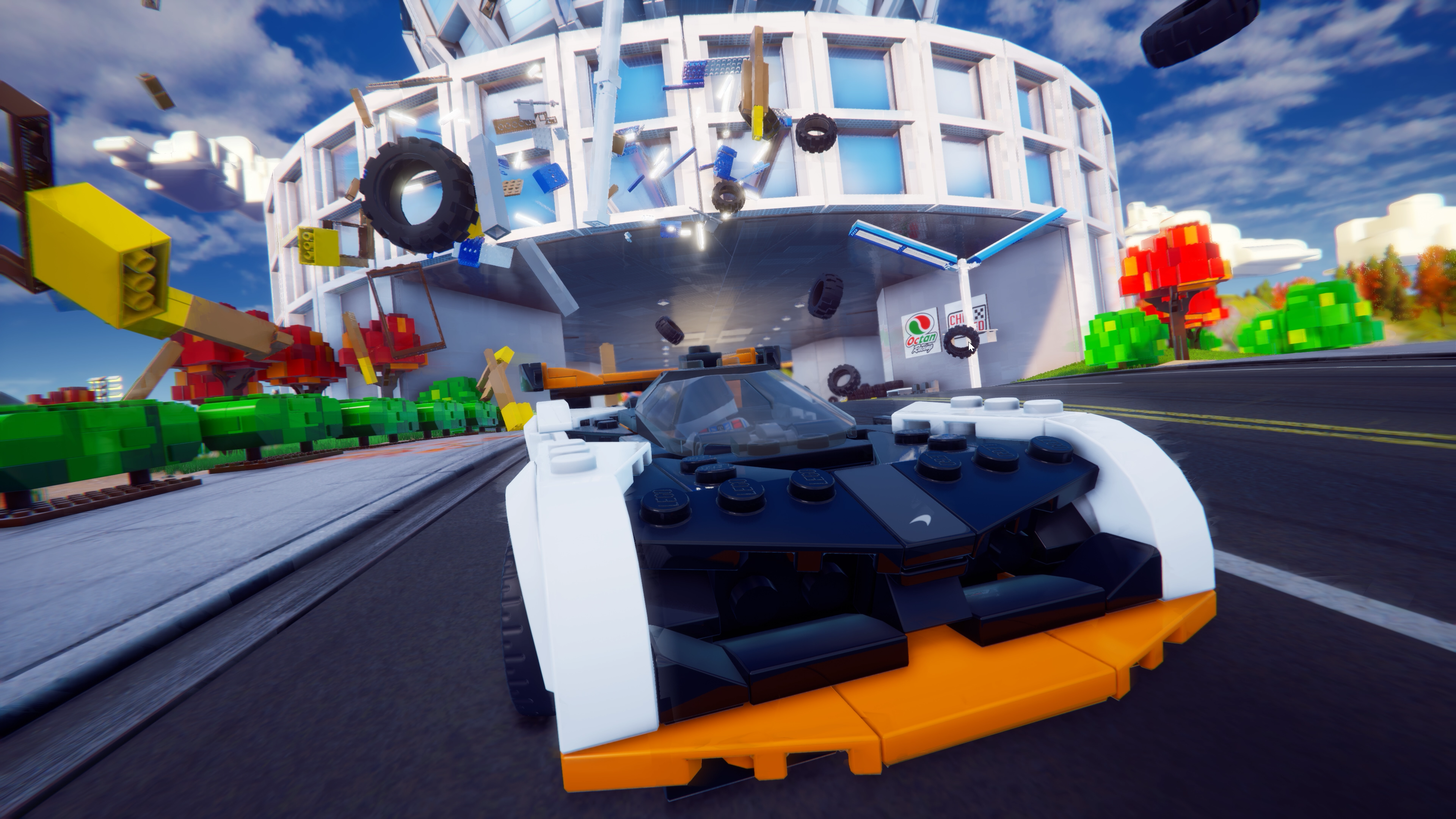Lego 2K Drive Is The Racing Game Lego Has Always Deserved
Lego 2K Drive is a silly, open-world romp of a kart racer limited only by your creativity. And to some extent your wallet — but creativity, mostly.
You can make anything with Lego, and a significant portion of time, that thing happens to be a car. Seriously — we don't talk about it enough, but there's a staggering number of kits available based on real cars, from the 930 Turbo (which could also be a Targa, if you desire) to Peugeot's new 9X8 WEC hypercar, to Dom and Brian's rides from Fast & Furious. Lego and cars have always paired well together, but that potential has never been realized in a game. Until now.
Oh yeah, I had Lego Racers for the Nintendo 64 as a kid, and it sure was a middling Mario Kart clone with a weak building element. Lego 2K Drive — the new open-world racer from Visual Concepts — is literally Forza Horizon with Lego, which is critically way better than the Lego expansion for Forza Horizon 4. You can build whatever you want, and what you build has a direct, tangible impact on driving feel and performance. It's a tinkerer's dream and it's not a half-bad kart racer, either.
Full disclosure: 2K Games provided Jalopnik with a code for Lego 2K Drive on PlayStation 5. The game is also available on PlayStation 4, current- and last-gen Xbox, PC and even the meager Nintendo Switch — a minor technical miracle in its own right.
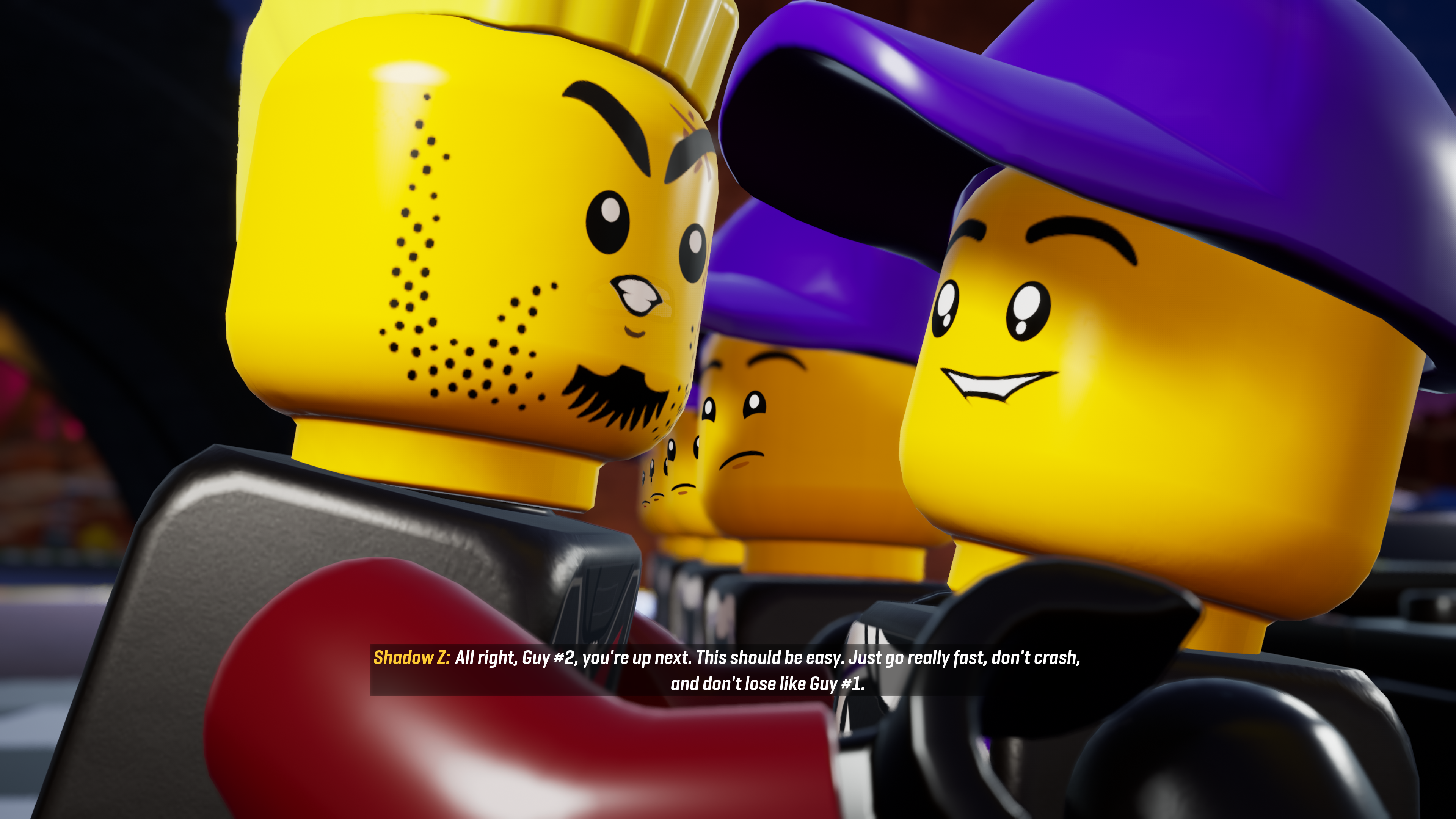
Of course, back in the days of Lego Racers, you had to set reasonable expectations for any licensed game made to fool— er, inspire kids. What surprises me most of all about Lego 2K Drive is that it feels genuinely polished and rich with depth. There are loads of voice-acted characters, and their dialogue is legitimately funny at times, even to a man now old enough to wake up with random neck problems. I figure if you're a parent, you'll love the support for split-screen multiplayer and Story Mode co-op.
There's a plethora of races, minigames and story missions to take up at any time, but somehow you never feel overwhelmed nor at a loss for what to do next. The pick-up-and-play On-the-Go trials set all over Bricklandia, which challenge players with tasks like drifting as long as possible in the allotted time, are triggered simply by driving through the starting gate. If your run goes south, you can instantly try again with a tap of the D-pad. Changing vehicles can be done anywhere, via the pause menu. It's an experience that could certainly be described as "frictionless," as developers like to say.
Speaking of vehicles, you can of course build them with the very intuitive editor, or drive the ones you're given by defeating rival racers in the campaign. I haven't built Lego without directions in quite some time, so I didn't exactly take to the blank-slate approach, but I have enjoyed modifying some of the vehicles I earned; for example, popping the roof off a muscle car and adding amber turn signals, something we care strongly about on this website. Little conveniences, like the ability to build half a vehicle and mirror it to the other side, and batch modify bricks of the same color, make realizing the vision in your head that much easier.
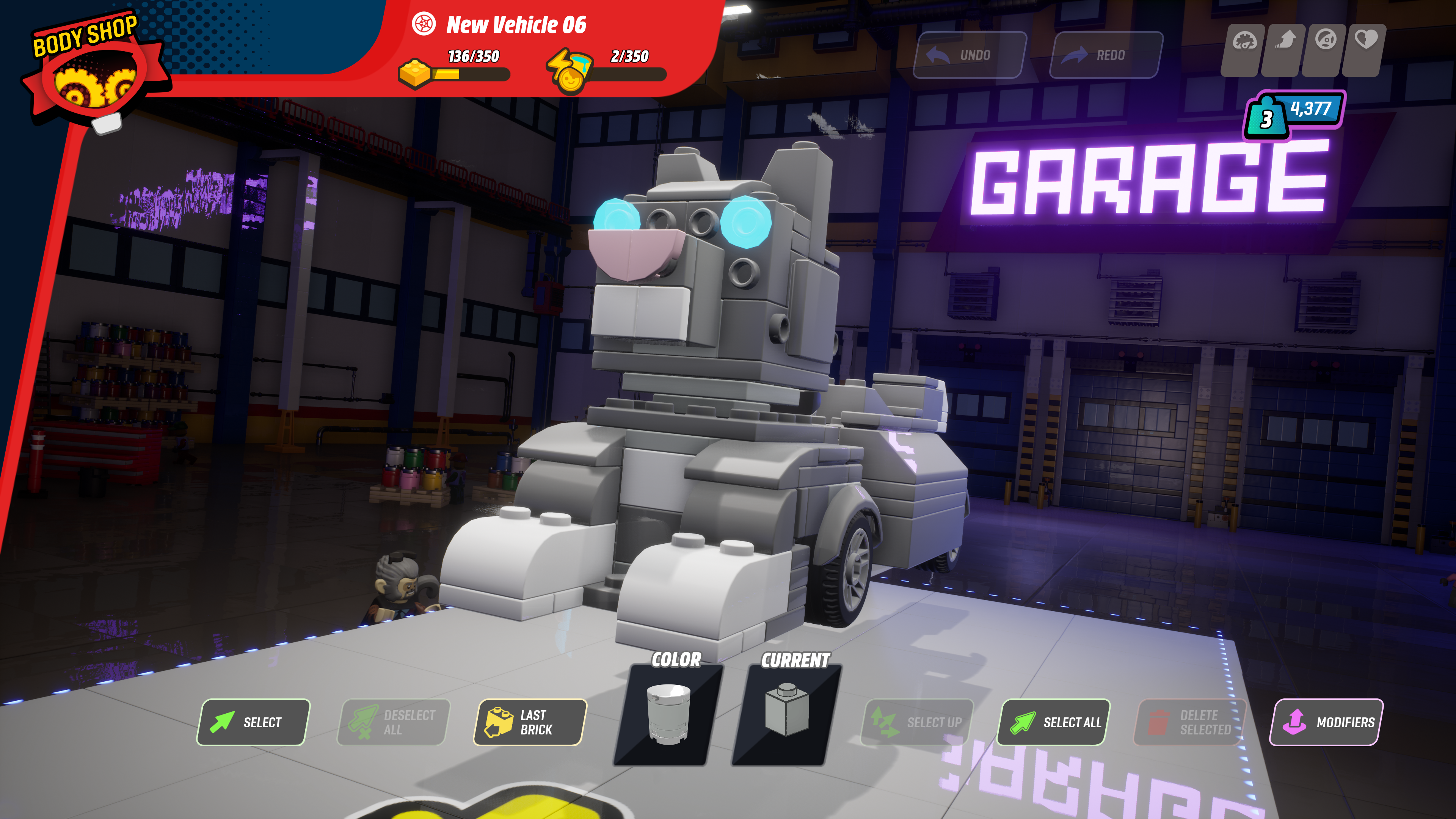
Venture off the asphalt, and your sports car will transform into a truck before your eyes, or a boat if you find yourself in the blue. You can create up to three loadouts of road, off-road and water vehicles, and swap between them at your leisure. All vehicles have clusters of changeable stats that are awarded or purchased, and each car, truck and boat falls into a weight class. The weight and durability of a vehicle is directly related to the number of bricks its carrying, which in turn impacts physics. Long cars, like a top-fuel dragster, will have poor turning circles, while lean sports cars like the McLaren Solus GT will handle sharply, and tiny, featherweight machines will pick up inner wheels in corners and get battered around by heavier competitors.
Get hit by a quick succession of weapons or crash into solid objects too many times, and your vehicle will actually lose bricks, lightening up the steering but also advertising to the whole pack that you're but one more rocket away from ruin and a respawn. You can heal simply by running into Lego objects in the environment to replace the bricks you've shed. Healing may as well be accidental in this game, given the amount of plastic detritus flying about in races. It won't do you much good to intentionally crash for a grip boost, like I speculated in my chat with the game's developers.
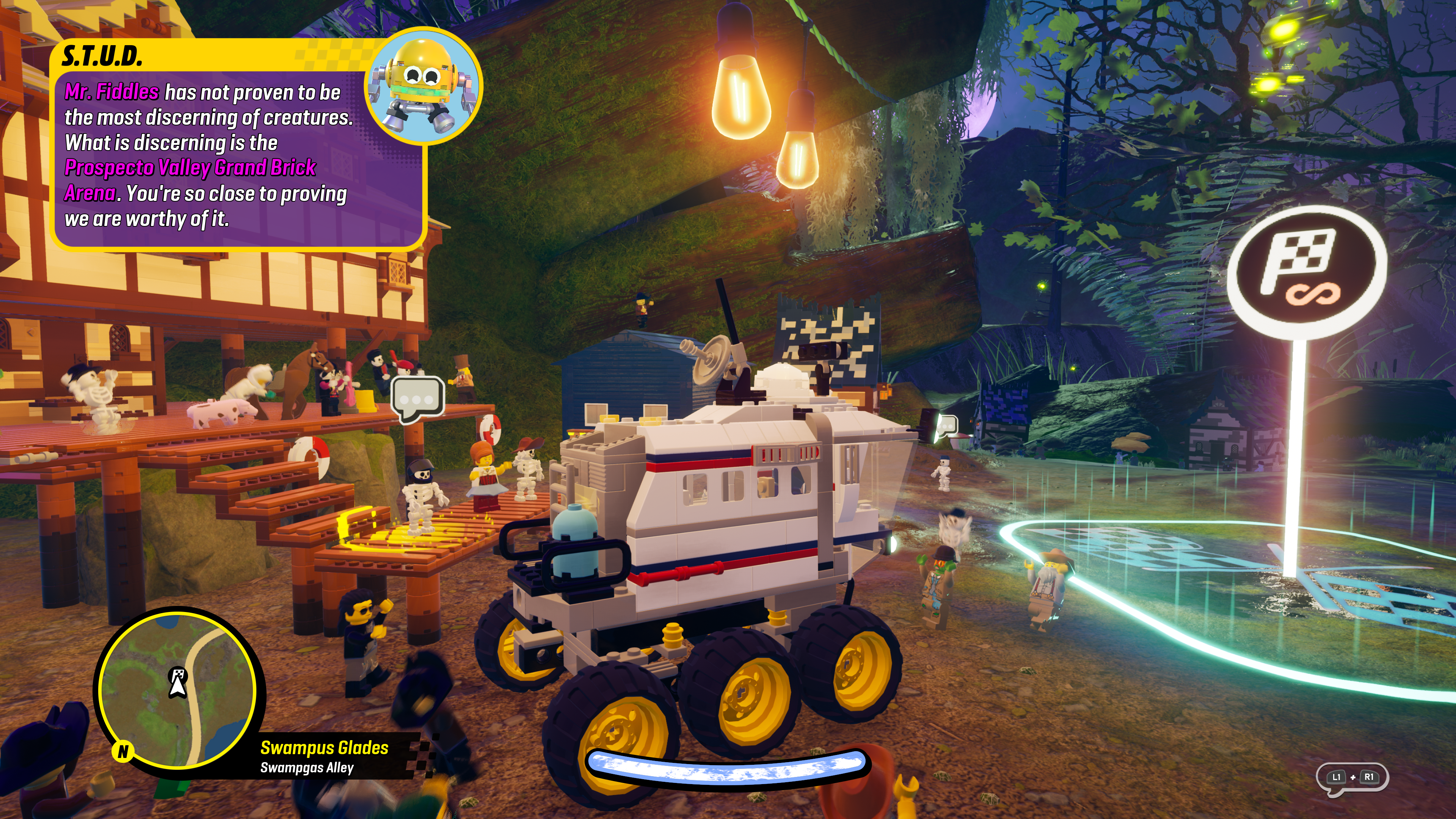
But that's the ingenuity of Lego 2K Drive. Everything is connected, and rather than the Lego theme simply informing superficial customization and nothing more, it touches the gameplay mechanics in a way you'd never see in another racing game, because no other racer allows you to build cars block by block.
As for the driving physics themselves, they're serviceable for a game like this. The left trigger — a brake in any other title — doubles as a brake and drift pedal in Lego 2K Drive, that you hold down through a corner to kick and keep the tail out. This is a little disconcerting initially, because it means you can only ever slow down in a straight line, something you never want to do in a kart racer. I would've preferred a dedicated drift button, like Mario Kart or Sonic & All-Stars Racing Transformed, but with practice you'll claw back any lacking sense of control.
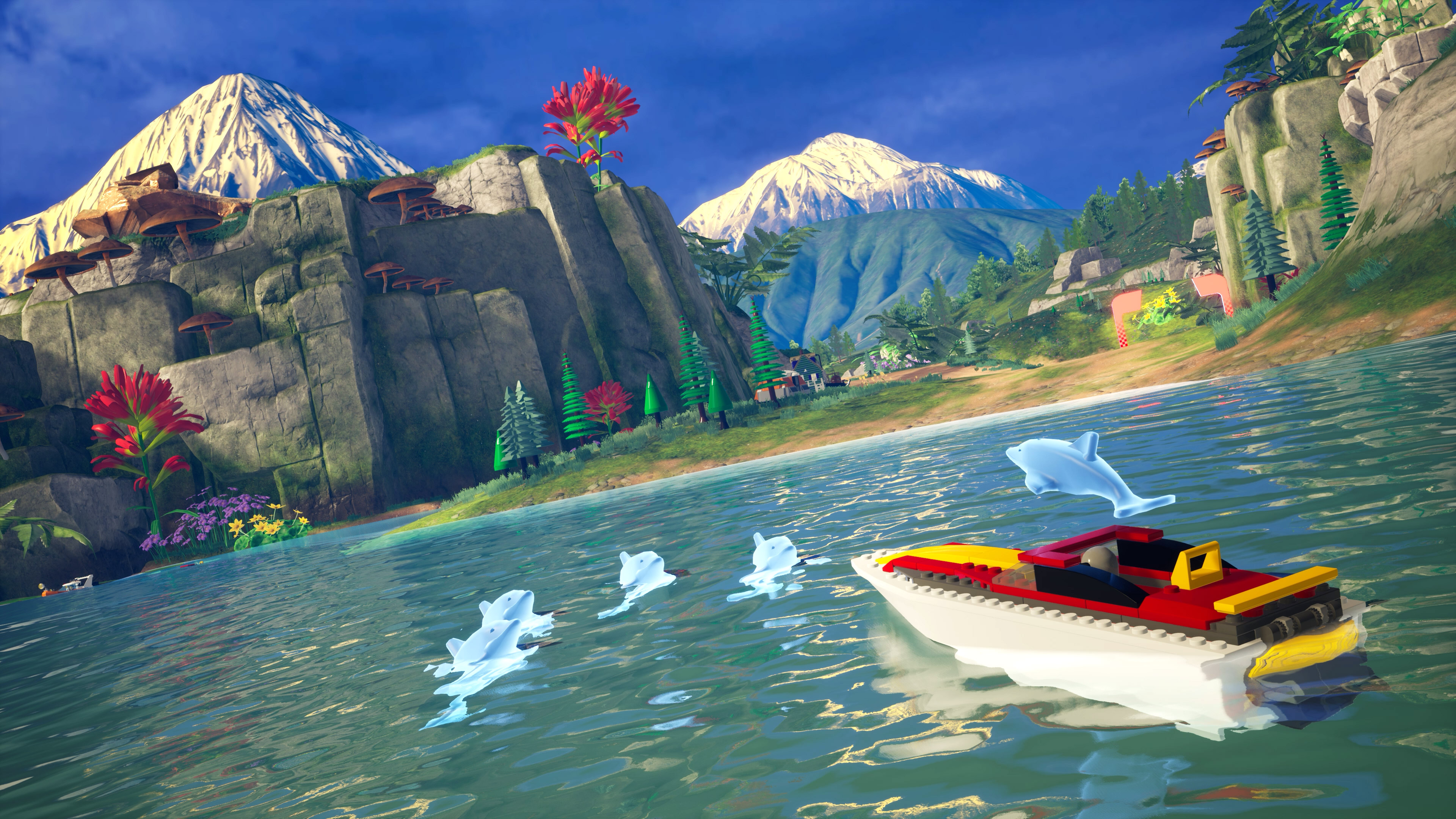
There is, however, a dedicated "Quickturn" button that helps you make tighter changes in direction. The recipe for victory involves a delicate balance of conventional drifting with judicious quickturns, like pulls of a handbrake. Another face button is exclusively reserved for jumping, which makes traversing the game's four unique biomes more fun than it has any right to be. There's no aircraft in Lego 2K Drive — and yet, I feel like I've spent half my time hurling through the air in this game.
Exploring is a blast, in part because the game performs shockingly well for a modern, open-world, triple-A release in 2023 built on Unreal Engine 4. (Again, at least the PS5 version; I'm making no claims about that Switch port.) Gameplay rarely wavers from its 60 frame-per-second lock, and glitches are nonexistent, save for the handful of times I got my Hamburghini wedged under the awning of one of Big Butte's many restaurants. The only legitimately annoying fault I encountered pertained to the event checklist on the heads-up display, which directed me to the wrong event to advance the story on one or two occasions.
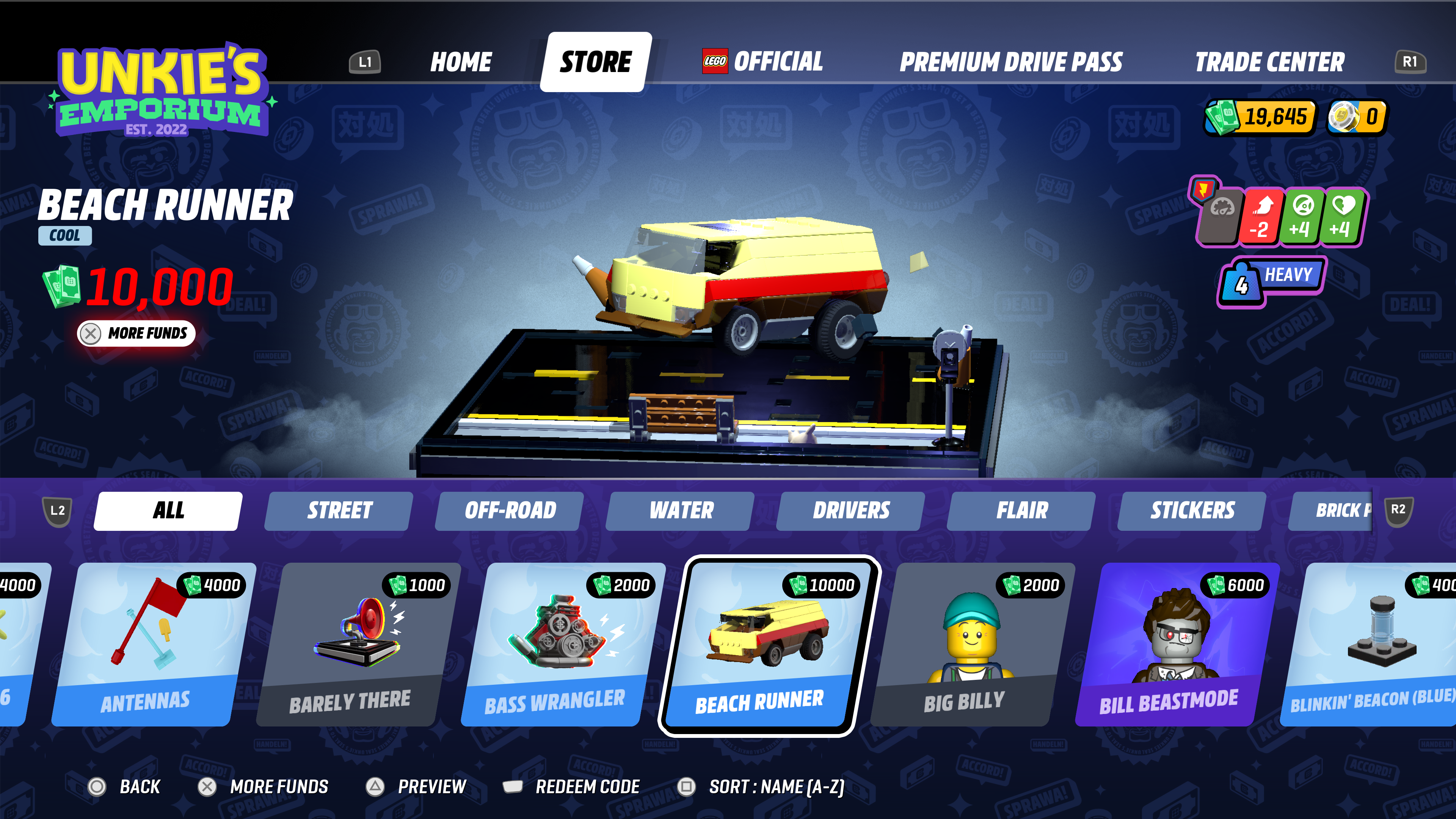
Finally, I'd be remiss not to acknowledge that with "2K" right there in the title and the myriad associations that brings, there are indeed microtransactions to contend with here. The in-game currency is called Brickbux, and real money can be spent on coins, which can be converted to Brickbux. Early races offer paltry payouts, but mid-game you can expect to earn about 500 BB per event. About six hours in, I'd made 9,000 BB playing the game normally.
The problem becomes clear when you hit up Unkie's Emporium — the in-game store — and peruse the wares. Pre-built vehicles cost 10,000 to 14,000 BB. At current coins-to-bux exchange rates, $5 ends up buying about 10,000 BB, which doesn't seem like a coincidence. Stat packs go for 1,250 BB, and groups of specialized Lego bricks cost a few thousand.
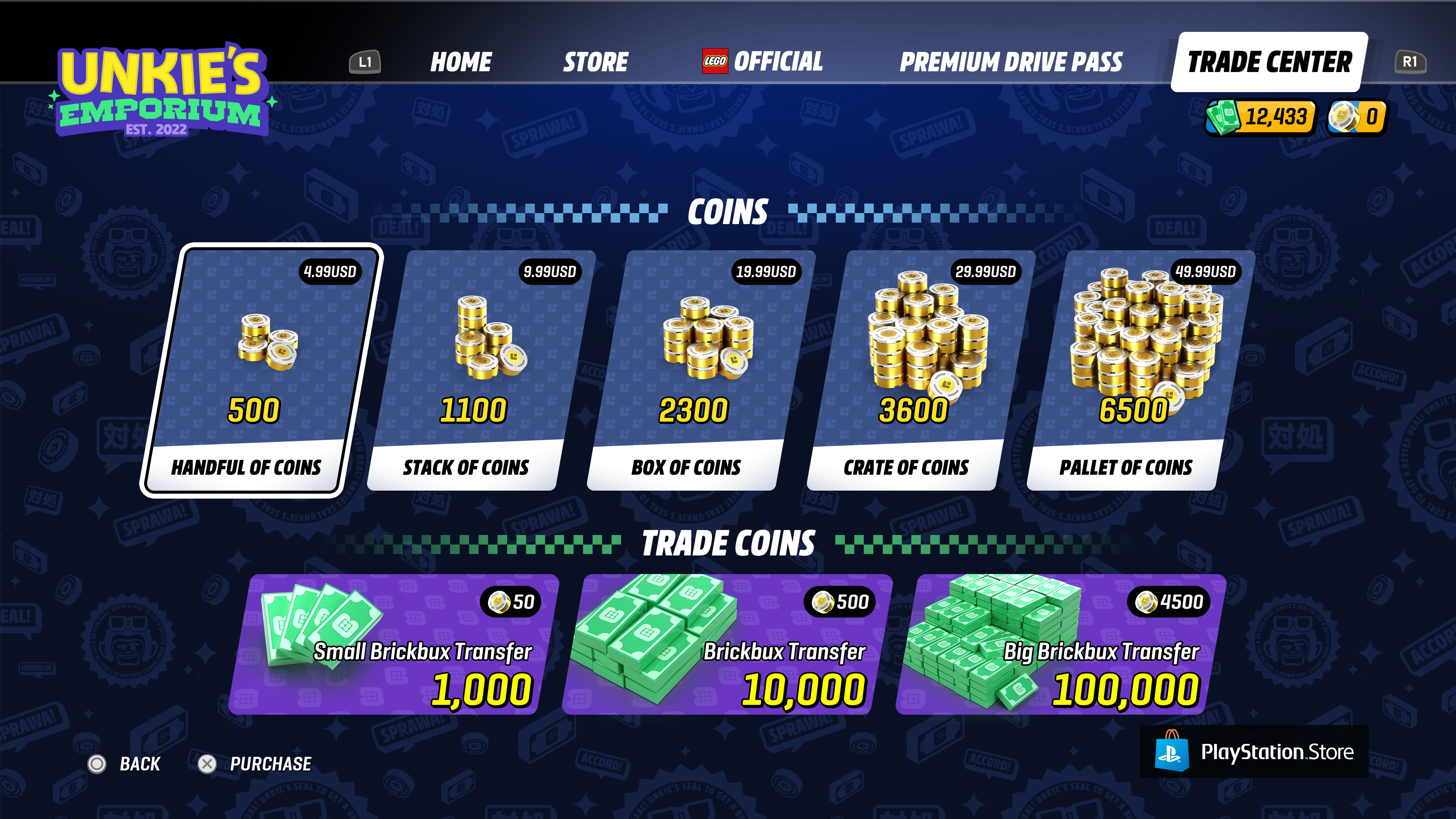
Personally, I'm happy enough with the garage I'm organically amassing through the game. Should I want more variety, I can get to stacking bricks — you're given all the pieces you really need from the jump. But I'm not a kid with parents to beg, so it doesn't really matter what I think. The economy isn't the worst, but it could use some work.
Thankfully, it doesn't put too much of a damper on what Lego 2K Drive is: a silly, addictive, well-built sandbox racer that rewards the creative. And the rich, but hey — Lego's always been pricey.
